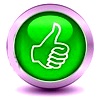A wiki is a website designed for collaborative editing, letting many people create, update, and organize content directly in a web browser.
They emphasize simplicity and openness — pages can be created or modified without special technical skills, and most maintain an edit history so revisions can be reviewed or reverted.
Key features
- **Collaborative editing:** Several contributors can edit pages, sometimes at the same time.
- **Edit history:** Each change is logged with a time and the editor’s name or IP.
- **Interlinking:** Creating links among pages is straightforward, which helps interconnect content.
- **Lightweight markup:** Formatting is usually handled by lightweight markup languages (e.g., WikiText or Markdown).
- **Permission settings:** Wikis may allow public editing or restrict changes to registered or authorized users.
- **Discussion pages:** Talk or discussion pages let contributors debate edits and organization.
Frequent uses
- Community knowledge bases such as Wikipedia
- Project documentation and internal company knowledge repositories
- Group writing and collaborative note-taking
- Classroom and educational projects
Advantages
- **Fast collaboration:** Contributors can rapidly create and improve content.
- **Openness:** Edit histories and talk pages reveal how content decisions were made.
- **Expandable:** Wikis can grow naturally as contributors add new topics.
Drawbacks
- **Vandalism and false information:** Open contribution can result in deliberate or accidental misinformation.
- **Inconsistent quality:** Entries may vary in accuracy, style, and completeness.
- **Organizational issues:** Lack of structure or rules can lead to disorganization and conflicts.
Notable example
- **Wikipedia** — the largest example, maintained by the Wikimedia Foundation and contributed to by volunteers worldwide.






















